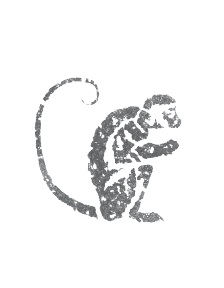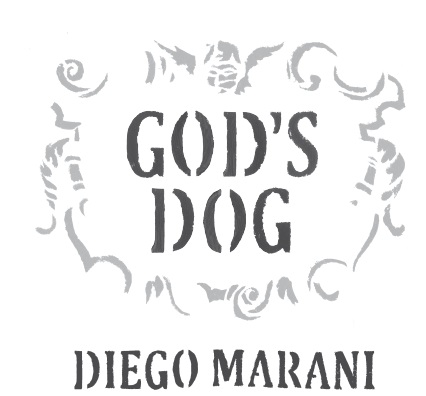God's Dog


PRAISE FOR DIEGO MARANI AND NEW FINNISH GRAMMAR
âThis is an extraordinary book, as good as Michael Ondaatje's
The English Patient
and with a similar mystery at its heart.'
Spectator
âBeautifully written and translated, and beautifully original.'
The Times
âWho is Sampo? This identity thriller delivers plot, bodies and cluesâas well as poetic musings on national and individual identity. Marani is obsessed by language and how it defines us.'
Independent
âMarani's miraculous novel is profound, moving, elusive and tragic.'
Irish Times
âThis is a desperately sad book. It takes its place beside Romantic stories of Kaspar Hauser and the Wolf Boy of Aveyron, which have haunted the European imagination for two centuriesâ¦Judith Landry is to be congratulated on her seamless translation from the Italian.'
New Statesman
âWe soon forget we are reading an English translation of an Italian novel. Sheer narrative vim is one reason for thisâ¦What gives
New Finnish Grammar
its true interest, however, is its evocation of a place and language foreign to the author yet, to all appearances, intimately familiar.'
Times Literary Supplement
âI wish I had the time and the energy to learn by heart some of the many passages in this excellent book in which the Finnish language is evoked as an entity more strange and compelling than even the characters who speak it or write letters in it or struggle to comprehend its power and mystery.' Gerald Murnane
âA thoroughly European sensibility: intellectual, melancholy, mysterious, imbued with a sense of tragedy and history.'
Independent on Sunday
PRAISE FOR THE LAST OF THE VOSTYACHS
âDiego Marani's second novel to appear in English, in a dazzling translation from the Italian by Judith Landry, is a riot of comic unpredictabilityâ¦
The Last of the Vostyachs
cleverly explores notions of freedom, possession and imprisonmentâerudition keeping pace with a rollicking plot. Marani's sentences are controlled explosions of impressionism, his narrative structure a thematic echo chamber.'
Times Literary Supplement
âSo, we have: 1. An intellectual puzzle. 2. A wild man of nature adrift in a big city. 3. A policier set near the Arctic Circle. (If that alone doesn't make you put down your copies of Fifty Shades of Whatever then I despair. It has that Killingesque atmosphere.) 4. Magic, and a sense of the immensity of the primeval universe. 5. An unmistakable dash of humour, even when your nerves are being shredded. 6. Wolves, and a Siberian tiger, let loose from a zoo. 7. A happy ending against all odds. And 8. All hanging together. When I reviewed
New Finnish
Grammar
, I edged towards using the word “genius” to describe Marani. I'm doing so again now.'
Guardian
âFor Italian fiction in translation, there is nobody more important being published today. This is a beautiful, intelligently funny novel.'
Italia Magazine
âMarani's fascination with languages, and with the silencing of language in particular, permeates this captivating work.'
Sydney Morning Herald / Age
âA roller-coaster ride whisking the reader alternatively through zones of darkness, hilarity, cruelty, tenderness, the near-lubriciousâ¦There's something for almost everyone.' PEN

DIEGO MARANI
was born in Ferrara in 1959. He has worked as a translator and policy officer for the European Commission and has written several other novels, collections of essays and short stories. Marani has been awarded the Campiello Prize, the Stresa Prize for
The Last of the Vostyachs
, as well as winning the Bruno Cavallini Prize.
New Finnish Grammar
has received the Grinzane-Cavour Prize, was shortlisted for the Independent Foreign Fiction Award, and the Best Translated Book Award, and longlisted for the European Book Prize. Marani invented the mock language Europanto, in which he has written columns for European newspapers. He lives in Brussels with his wife and two children.
JUDITH LANDRY
is a translator of works of fiction, art and architecture. Her translations include
The Last of the Vostyachs
by Diego Marani,
The House by the Medlar Tree
by Giovanni Verga,
The Devil in Love
by Jacques Cazotte,
A Bag of Marbles
by Joseph Joffo, and
Smarra & Trilby
by Charles Nodier. In 2012, she was awarded the Oxford-Weidenfeld Translation Prize for Marani's
New Finnish Grammar
.

TRANSLATED BY JUDITH LANDRY

The Text Publishing Company
Swann House
22 William Street
Melbourne Victoria 3000
Australia
Il Cane di Dio
© copyright Diego Marani 2012
English translation copyright © Judith Landry 2012
All rights reserved. Without limiting the rights under copyright above, no part of this publication shall be reproduced, stored in or introduced into a retrieval system, or transmitted in any form or by any means (electronic, mechanical, photocopying, recording or otherwise), without the prior permission of both the copyright owner and the publisher of this book.
First published in Italian as
Il Cane di Dio
, Bompiani, 2012
First published in the UK by Dedalus, 2014
This edition published by The Text Publishing Company, 2014
Cover design by WH Chong
Page design by Imogen Stubbs
National Library of Australia Cataloguing-in-Publication entry:
Author: Marani, Diego.
Title: God's Dog/ by Diego Marani, translated by Judith Landry.
ISBN: 9781922147714 (pbk.)
ISBN: 9781921148711 (ebook)
Subjects: Detective and mystery stories.
Other Authors/Contributors: Landry, Judith.
Dewey Number: 853.914
I
âMy name is Domingo Salazar, I was born on the feast of Saint Dominic and brought up by the Dominican Fathers. I am a policeman, I see to it that the laws of our Holy Mother Church are respected and I work for the worldwide spread of that same Church. I never knew my parents, but from the colour of my skin I think they must have been Caribbean, or at least of mixed race. The Fathers found me beneath the rubble of the orphanage of the Holy Cross, in Haiti, in 2010, and brought me to Italy. I grew up in the boarding-school run by the Dominican sisters of Saint Imelda, I studied at the patriarchal monastery in Bologna and then at the Papal Police Academy in Rome, which I left with the rank of inspector in the fifth year of the reign of Pope Benedict XVIII.'
He had developed this mania for diary-keeping as a result of the time he had spent with the nuns. âTime to get writing!' the mother superior would say after tea, throwing open the grey door to the wood-panelled main hall. You still wrote with pen and paper in those days, in an exercise-book backed with black cloth which was chained to the desk, and which the sisters would read through later. So this diary had become a detailed account of his life, divided up into years. But Domingo Salazar would always copy out those first same sentences in every new exercise-book he began, as though to remind himself of who he was.
It was almost time for his appointment. Outside it was already dark. He had slept much of the afternoon; he had thrown himself on to the bed the moment he'd arrived, without even opening his suitcase. His flight had left at dawn, and he'd spent the whole previous night writing, as he always did. He washed himself in cold water, then shaved and dressed slowly in front of the mirror in the bathroom. He picked up his pistol-case from the chair and strapped it on under his arm. He didn't like the sound of this new mission. He didn't yet know much about it, but hunting down angels of death was a job for an ordinary municipal policeman, not an inspector like himself. Those Free Death Brigades struck him as amateurs, hot-heads with few means and even less experience. For all he knew, they might not even be organised into a proper group; they were stray dogs embarking on wild-goose chases. But orders were orders, and at seven o'clock he would learn further details about his assignment from the Vicar.
He arrived at Sant'Andrea della Valle just as evening mass was ending. The priest gave the blessing and the faithful started trooping out. Salazar went up to the confessional to the right of the nave. The curtain was half-open, but the priest's seat was empty, as was the one in the other confessional to the left. He walked up and down, pretending to examine the frescoes, then went back into the apse. By now the church was empty, except for an altar-boy who was putting out the candles. Salazar decided to go and kneel before one of the two confessionals at random, imagining that the Vicar, were he in the church, would come and join him. An agent and his Vicar must never see or know each other; they were not to use mobiles or e-mail; communication between them had to be exclusively oral. This was the number one safety rule for the secret agents of the papal police. The meeting-place was a confessional in the church referred to in the mission order, itself the only written document â unsigned â which would remain in the registers of the barracks to which the agent in question belonged. When an agent on a mission lost contact with his Vicar, he had to present himself at the nearest Swiss Guards post for an identity check. That was the only way he could be reinstated in the corps. Otherwise he himself became an outlaw, and might be eliminated. Salazar went back into the nave and up to the nearest confessional, the one on the left. Coming from the chapel, he couldn't see the seat but, as he approached, he saw two black shoes on the footstool. Well, he thought, the Vicar's here at last. He was about to kneel down when the purple curtain was nudged aside by an elbow; for one brief instant, Salazar saw the fingertips of two white hands holding a glass bulb, witnessed the delicate gesture made by a one-eyed man slipping his prosthesis into an empty socket. Then the curtain was almost closed again, and the man's face was sunk in shadow. Embarrassed by his unintentional intrusion, Salazar took a few steps backwards before going to kneel down, hoping that the Vicar had not noticed anything. He could hear breathing through the openwork grille. As agreed, he recited the Credo, gave his registration number and then waited, in silence.